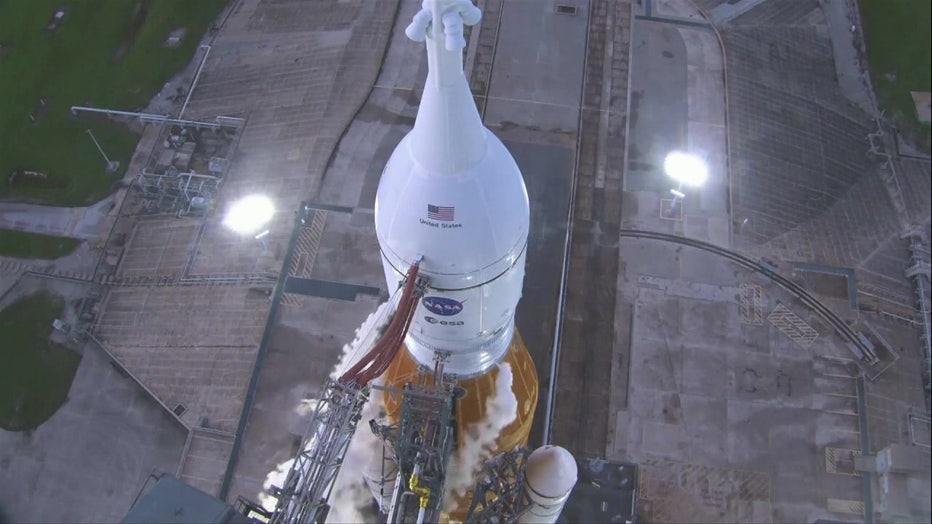60 years later, NASA celebrates the lasting legacy of JFK’s unifying speech to beat the Soviets to the moon
TAMPA, Fla. - Sixty years ago, John F. Kennedy's speech at Rice University urged the nation to unify behind the idea that beating the Soviet Union to the moon was of the utmost importance.
"That challenge is one we are willing to accept," the former president said September 12, 1962. "One we are unwilling to postpone."
In under 20 minutes, he laid out the next decade of exploration, but may not have realized he was also inspiring the next six decades.
"Space is there. And we are going to climb it. The moon and the planets are there. And new hopes for knowledge and peace are there," Kennedy said.
From moon missions, to the space station, to telescopes based in space, the knowledge gained is undeniable. The Webb telescope, the Artemis moon missions and the plethora of private rockets have extended Kennedy's legacy to a time period with technology he could hardly have imagined.
MORE: NASA releases stunning new images of Phantom Galaxy from Hubble, James Webb telescopes
"More than 50 cents a week for every man, woman and child," Kennedy said at the time. "A staggering sum, though somewhat less than we pay for cigarettes and cigars."
On Monday, NASA celebrated the 60th anniversary of JFK's speech with a commemoration event at the same stadium in Houston where he spoke.

"It galvanized the historic effort that we are now stewards of," said NASA Administrator Bill Nelson. "We must never stop daring to take the next moonshot."
University of Central Florida space historian Dr. Amy Foster said even in the turmoil of the 60s, Kennedy artfully appealed to something bigger than partisanship, in a reasoned way that asked for sacrifice, without promising magic.
"There was a lot of consternation in this country. But this was something people could rally behind," said Foster. "I think the idea of being able to beat the Soviets was inspiring."
READ: Artemis I scrubs again: Launch of NASA’s giant new moon rocket delayed by familiar foe
JFK likened the moonshot to climbing Mount Everest, flying the Atlantic and studying medicine. His speech inspired congress to spend money, for scientists to serve their country, and for all of us to imagine the moment when Neil Armstrong descended to the moon's surface.
"We set sail on this new sea because there is new knowledge to be gained, and new rights to be won, and they must be won and used for the progress for all people," Kennedy said that day.
The Apollo program enlisted more than 400,000 people to take part in the national effort to send American astronauts to the moon.

